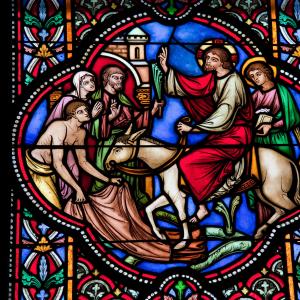
Scott Bessenecker is Interim Director of Mission for InterVarsity Christian Fellowship. Each year he helps to mobilize thousands of students to domestic and international mission. He is author of various books including his new release Overturning Tables: Freeing Missions from the Christian-Industrial Complex.
Posts By This Author
Are We Willing to Die on the Hill of Love?
On InterVarsity, Sexual Ethics, and Justice
American evangelicals hold their theological and social views with deep conviction. We tend to add a layer of moral certitude to our positions. This can sometimes be helpful in the struggle for justice. But if every issue becomes the social or theological hill we choose to die on (or to kill on), then there are too many of us killing or dying on too many hills.
In part, this dogmatic tendency stems from the evangelical belief in absolute truth. In a world gone radically relativistic, this belief is a good thing. But when these convictions are challenged, it can feel like an assault against universal truth itself. We may fear that if one of our beliefs needs correction, then our presupposition about any truths that transcend time and culture are at risk.
When the Gospel Becomes a Product
Some friends of mine took their 3-year-old daughter to a Starbucks coffee shop for the first time. “Mommy,” she asked, “are we in church?” Given the way some of us love coffee I suppose one answer might have been, “Yes, dear, I guess we are in a place of worship.” But the larger question for me is, “have we so accommodated a culture of materialism and consumption that we have lost the heart of the gospel?”
The gospel ought to consume us; instead we have turned it into a consumable.
I believe the good news about the reign of Christ over the all creation, the invitation to love our enemies, the vision of communities beating their weapons into agricultural implements, has been turned into a product. For many the gospel has been reduced to a privatized salvific experience purchased through a ministry outlet mall – the church dressed up like a coffee shop selling cups of Pumpkin Spice Savior.
The original Great Commission was issued in Genesis 1:28: “Be fruitful and multiply, and fill the earth and subdue it; and have dominion over the fish of the sea and over the birds of the air and over every living thing that moves upon the earth." In this was an invitation for the creatures that had been made in God’s image to steward all life. Instead of “fill the earth,” the King James Version says, “replenish the earth.” In fact the Hebrew word for fill, mala, is just as easily translated “fulfill” or even “satisfy.” There is something about our place in the cosmos that satisfies the earth like nothing else. As God’s vice regents, we were designed to govern ourselves and our planet with the wisdom, grace, and creativity of the Maker of All Things.
Would Jesus Occupy Wall Street?
Protests in Ferguson, rallies in Hong Kong, and the Occupy Movement: People challenging systems and structures clamber for my attention. But faithful followers of Jesus shouldn’t get involved in these political and economic wrangling, should they? Sure, we ought to pay our taxes and vote; you know, give to Caesar and all that. But Christians should only be concerned about the spiritual transformation of individuals, not gallivanting around to rail against political and economic systems. After all, Jesus never protested political or economic policies did he? If we transform enough people, won’t the rest of the systemic issues work themselves out?
I have heard this challenge to Christian involvement in social movements numerous times, and it holds a certain appeal for someone like me who is allergic to politics. I’m the no-bumper-sticker, no-yard-sign guy who would just as soon steer a discussion away from upcoming elections than face the discussion of large-scale political or economic issues. I’d much rather focus on individual spirituality. After all, Jesus never did march on Rome or speak out against Caesar’s cruel dictatorship. He doesn’t mean for us to get mixed up in social, political or economic activism.
Or does he? I am learning to re-examine the cultural lenses by which I encounter Christ in scriptures.


